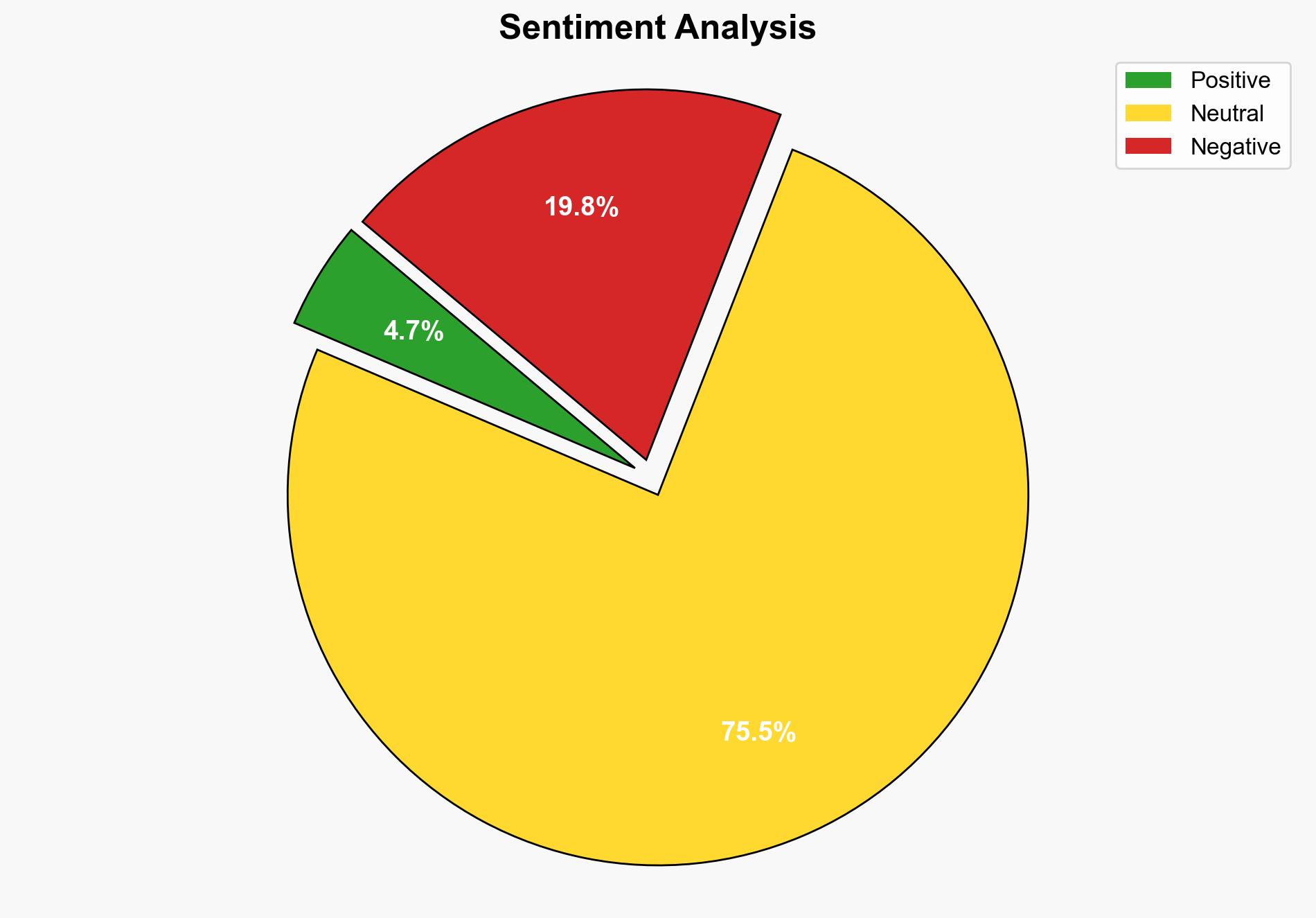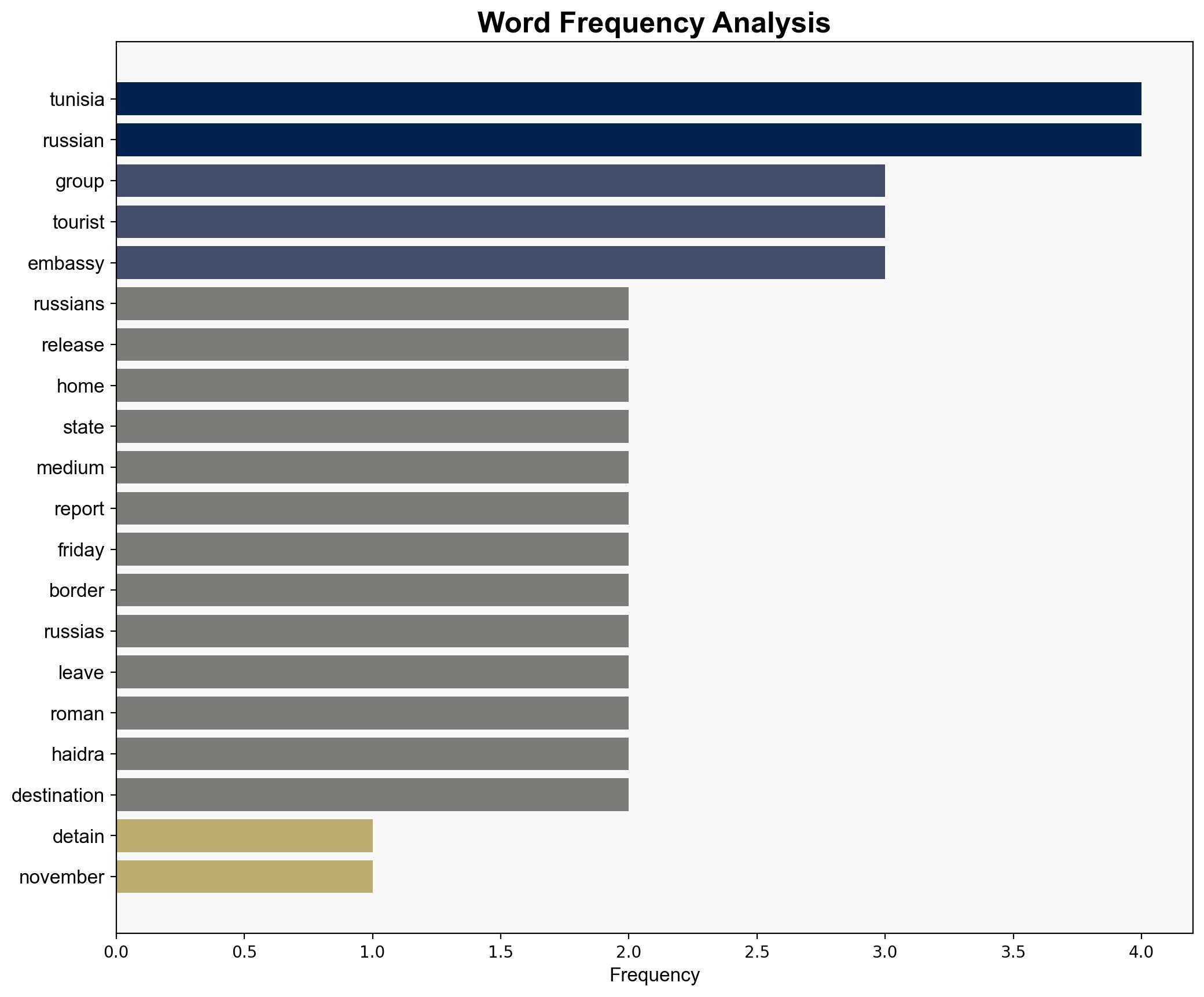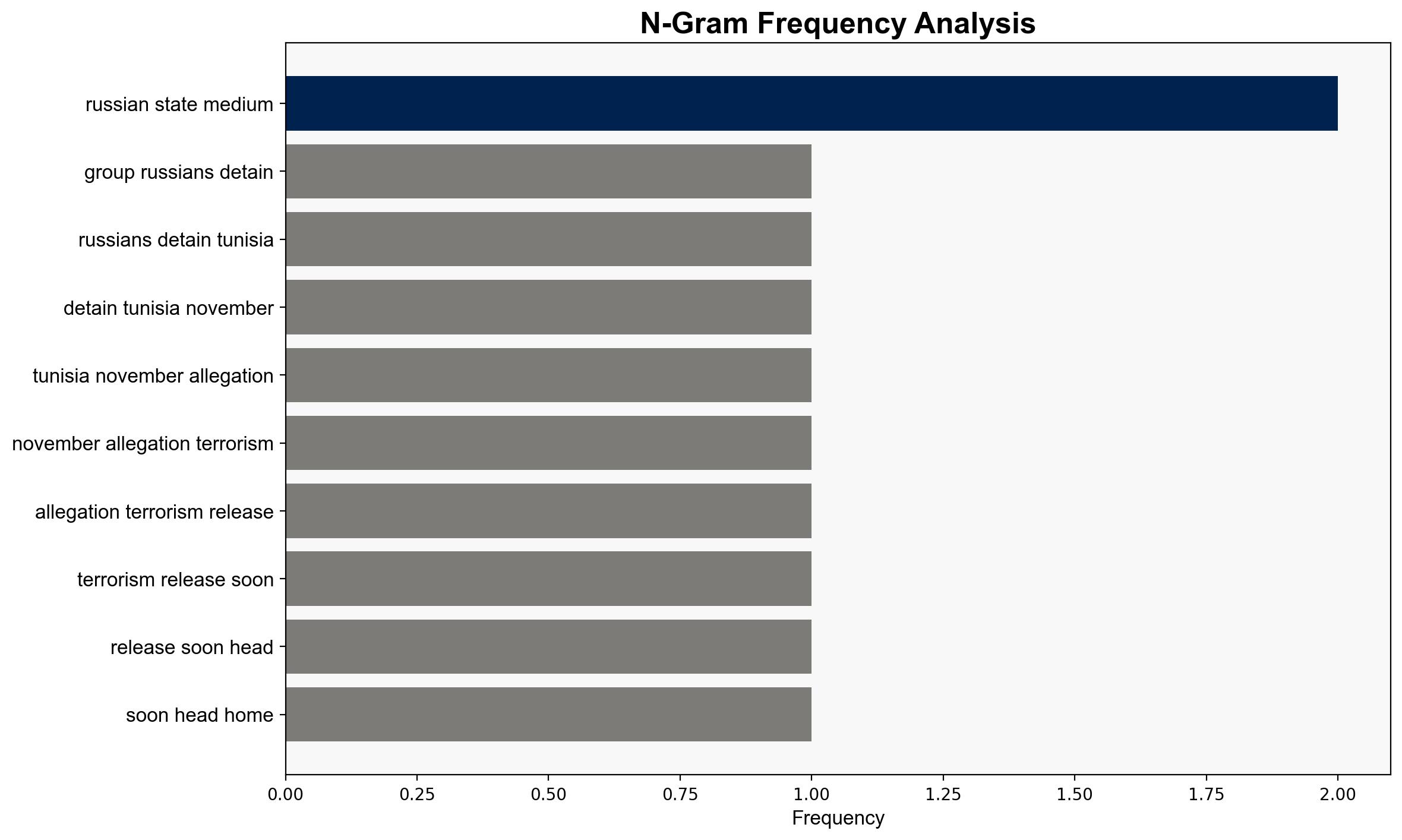Tunisia frees 11 Russians accused of terrorism – The Punch
Published on: 2025-04-11
Intelligence Report: Tunisia frees 11 Russians accused of terrorism – The Punch
1. BLUF (Bottom Line Up Front)
Eleven Russians detained in Tunisia on terrorism allegations have been released without formal charges. The group was found near the Algerian border with equipment not typical for tourists. Their release and return to Russia suggest diplomatic negotiations may have influenced the outcome. The incident highlights potential vulnerabilities in border security and the complexities of international tourism amid geopolitical tensions.
2. Detailed Analysis
The following structured analytic techniques have been applied for this analysis:
General Analysis
The detention and subsequent release of the Russian group in Tunisia raise questions about border security and the identification of potential threats. The group’s presence near the Algerian border with unspecified equipment suggests possible reconnaissance activities, although no charges were filed. The lack of transparency from both Russian and Tunisian authorities indicates a diplomatic resolution, possibly influenced by Russia’s strategic interests in maintaining access to Tunisia as a travel destination amid global travel restrictions.
3. Implications and Strategic Risks
The incident underscores several strategic risks:
- National Security: The presence of foreign nationals with suspicious equipment near a border highlights potential gaps in border security and intelligence operations.
- Regional Stability: The proximity to Algeria, a region with historical security concerns, could exacerbate tensions if similar incidents occur.
- Economic Interests: Tunisia’s reliance on tourism, particularly from Russia, may be impacted by perceived security threats, affecting economic stability.
4. Recommendations and Outlook
Recommendations:
- Enhance border security measures and intelligence-sharing protocols with neighboring countries to prevent similar incidents.
- Implement stricter regulations and monitoring of foreign tourists in sensitive regions to mitigate security risks.
- Foster diplomatic channels to address and resolve international incidents swiftly, minimizing economic and political fallout.
Outlook:
Best-case scenario: Strengthened border security and diplomatic relations lead to improved regional stability and continued tourism growth.
Worst-case scenario: Repeated incidents result in heightened tensions and reduced tourism, impacting economic stability.
Most likely outcome: Incremental improvements in security measures and diplomatic engagement maintain a balance between security and tourism interests.
5. Key Individuals and Entities
The report mentions the following individuals and entities:
- Russian state media
- Tunisian police
- Russia’s embassy in Tunis
- Russia’s TASS news agency
- AFP




